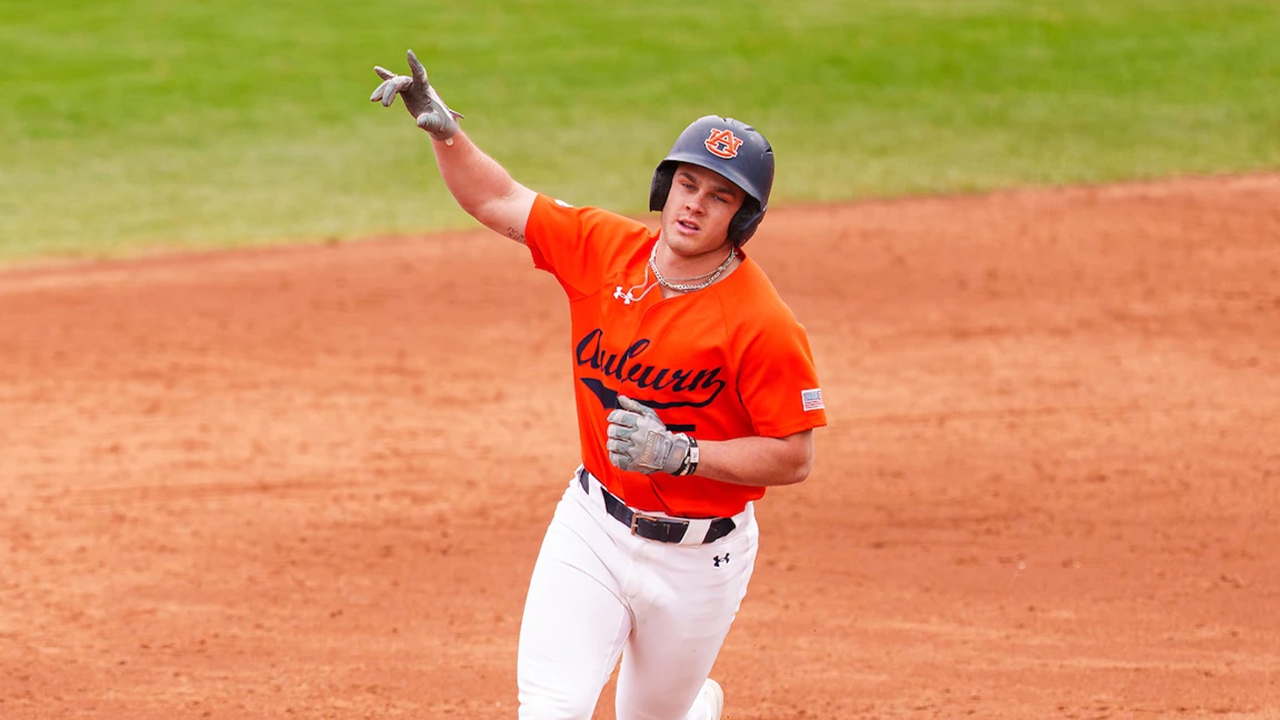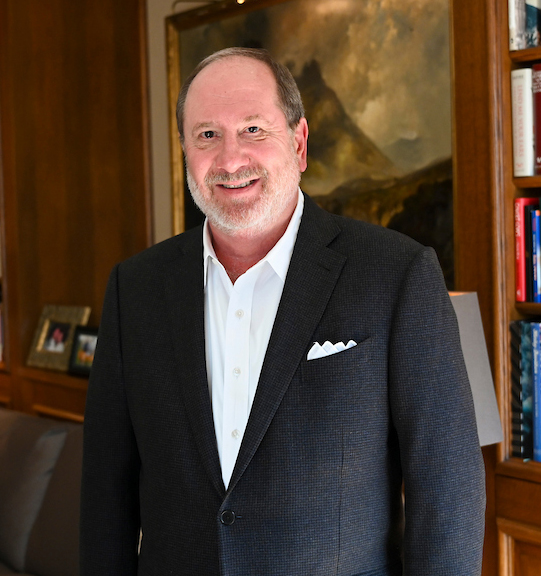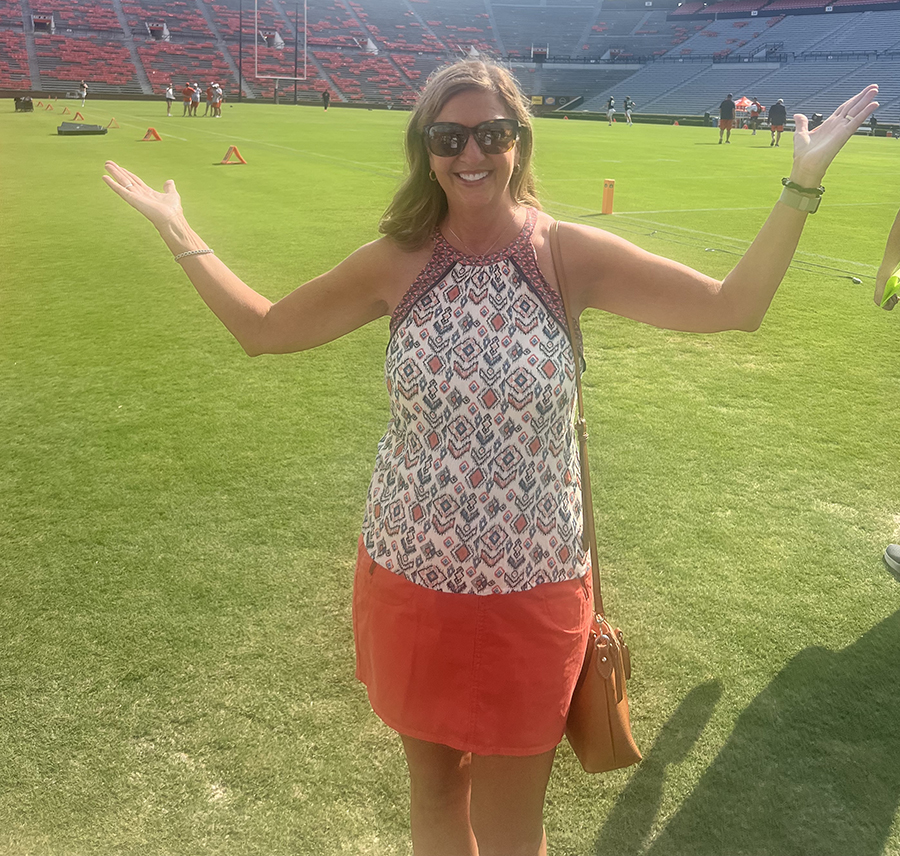After Scott Flanary earned a spot as a competitor on the 29th season of the CBS adventure show “The Amazing Race,” his friends and family members wanted to know if there was anything he wouldn’t do
in pursuit of the $1 million grand prize.
“Bungee jumping,” he told them. “I am very afraid of heights. I was thinking to myself
that it is literally the one thing I would never do on the `The Amazing Race.’”
So, naturally, on the ninth episode, the 2005 Auburn University business alum found
himself taking halting steps along a narrow bridge high above the Corinth Canal in
Corinthos, Greece, and being fitted for a helmet and safety harness. “Are you kidding
me?” he said as the CBS cameras rolled. “The one thing I did not want to do!”
He looked down – way, way down – into the narrow strip of aquamarine water more than
250 feet below the platform. Bordered on both sides by cliff walls that were seemingly
close enough to touch, the canal appeared to be the approximate size of a bathtub
from his vantage point. The bridge over the canal joins the mainland of Greece with
Peloponnese, but Flanary wasn’t appreciating the site’s beauty or its 4,000-year history.
“This is too much, this is too much, this is too much,” Flanary chattered. “I can’t
do it, I can’t do it.”Rather than risk being eliminated from the race, Flanary closed
his eyes and let gravity and the bungee do the rest. Over the course of 23 days and
a 36,000-mile journey across five continents, nine countries, and 17 cities, Flanary
and his partner, Brooke Camhi, fought through fatigue and a variety of physical and
mental challenges. At the end, after flying from South Korea to Chicago and negotiating
even more obstacles – including stops at Chicagoland Speedway, Wrigley Field, and
an encounter with the city’s beekeeper – the duo reached the finish line ahead of
the other 10 teams and learned they would split the $1 million prize.
Flanary, who earned a business administration degree from the Raymond J. Harbert College of Business, hasn’t quit his day job as
a West Coast-based recruiter for accounting firm Moss Adams. State and federal taxes claim a significant chunk of the prize money and, as Flanary
notes, “our 15 minutes of fame are going to go fast.”
Oddly enough, Flanary’s educational experience at Auburn may have played a role in
his success on the reality show. Beyond his coursework in business management, which
provided insight into strategic decision making and interpersonal dynamics, he served
as a member of the Student Government Association President’s Cabinet and as president
of a variety of student groups, and worked Camp War Eagle. Those came in handy since
the 29th season of “The Amazing Race” cast 22 complete strangers.
“You have to be very flexible in terms of how you build relationships with different
people,” said Flanary, who earned a master’s degree at Harvard and worked in higher
education orientation and admission roles at Johnson & Wales University and the University
of Southern California. “I went into the show knowing fully well I was capable of
winning with whoever they gave me. When they gave us a chance to choose [partners],
I thought about who might be the best three or four people who would best work with
me based on first impressions. I didn’t need the added stress of someone I couldn’t
get along with.”
Previous seasons of the show have featured competitors with shared histories – teams
of husbands and wives, boyfriends and girlfriends, fathers and sons, and long-time
best friends. Flanary said the lack of previous personal history with a partner likely
enhanced communication throughout the show. “You can be blunt,” he said. “I didn’t
have the implication of being in her world after the show. We didn’t have to speak
again, although Brooke and I still do. The stress levels are so much higher than you
expect.”
So, too, is the fatigue. Viewers of “The Amazing Race” may appreciate the sights of
Barbados and the Galapagos Islands more so than the competitors as they chase prize
money and complete grueling physical and mental challenges around the globe.
“Some of the countries – like South Korea, for example – we were in and out in 24
hours,” Flanary said. “You don’t really get to experience the culture and environment.
I probably could’ve stopped and smelled the roses a little bit more, but I was focused
on winning the race and the next conversation I needed to have with my partner.”
Flanary’s globe-trotting in the foreseeable future may be connected to his interest
in buildOn, an international non-profit that builds schools in developing countries.
However, there’s always the chance that CBS viewers will see Flanary resurface again
on a remote island in the Pacific or in a house full of strangers.
“I had always wanted to compete on the CBS trifecta – `Survivor,’ `The Amazing Race,’
and `Big Brother,’” he said. “When I got home from `The Amazing Race,’ the very first
thing I did after taking a shower was collapse on my couch and watch `Big Brother.’”

 Degrees & Programs
Degrees & Programs
 Faculty & Staff
Faculty & Staff
 Career Development
Career Development
 Recruiters & Industry
Recruiters & Industry


